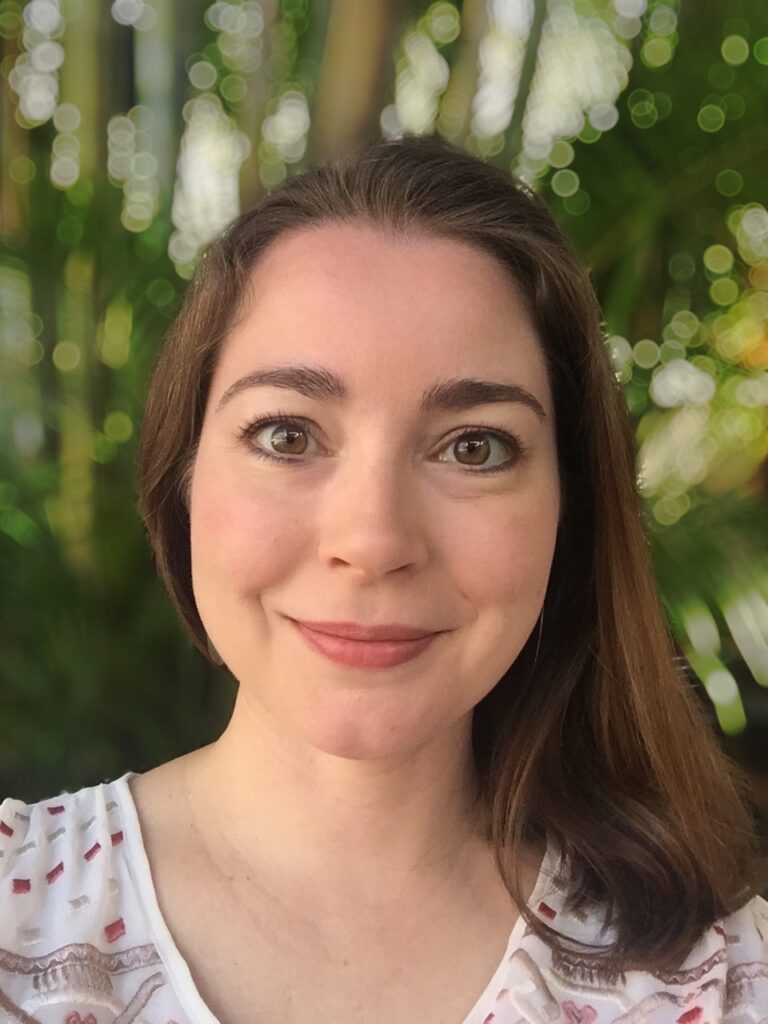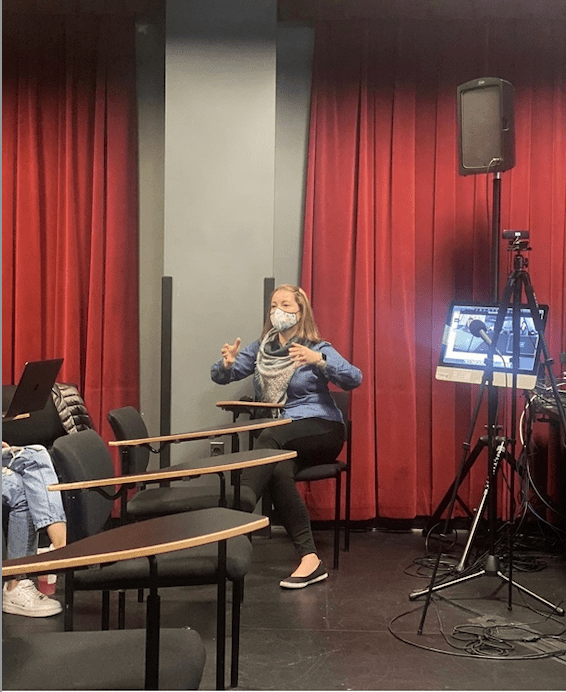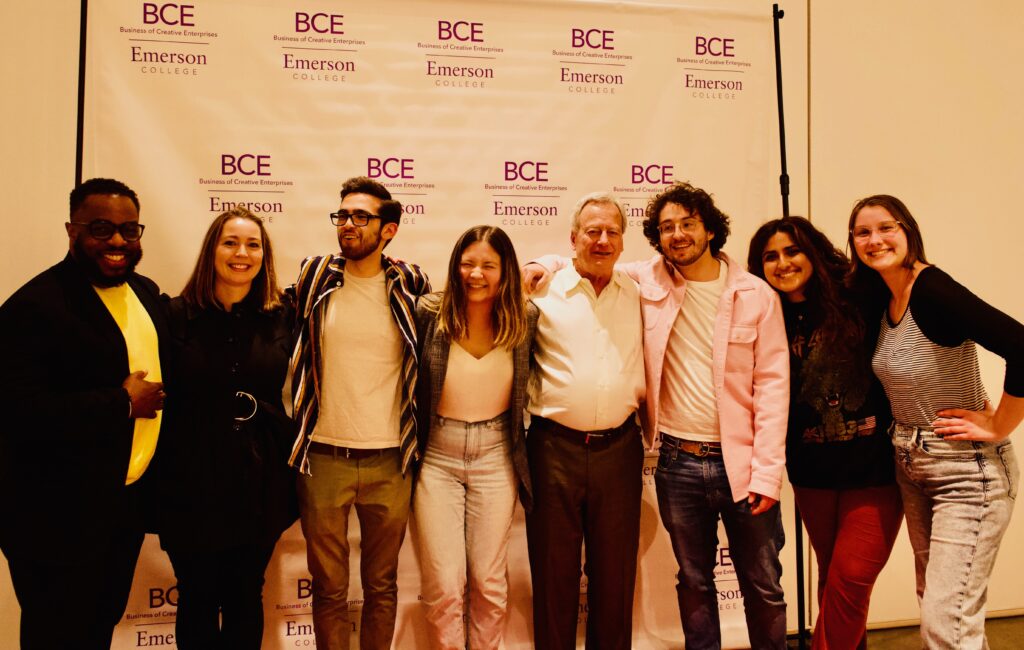McCormick Looks to Be ‘Big C’ Collaborator as New BCE Director
Senior Executive-in-Residence Brenna McCormick is one of two current faculty members who are OGs of the five-year-old Business of Creative Enterprises (BCE) program. Seeing the program from its inception to its present day makes being named director of the program even more exciting, she said.

McCormick will also continue her role as the graduate program director of the Strategic Marketing Communication program. She talked about her new role, the future of the BCE program, and more with Emerson Today.
Q: What are your goals for the BCE program?
McCormick: The BCE program is a vibrant community of leaders, scholars, and learners. My goal is to continue to hone the energy and success of this unique and dynamic program.
Just like the creative economy, the BCE program is continuously evolving. Directing the program invites a mindset of awareness, relevancy, and curiosity. From there, you need to be making small adjustments-like tuning an instrument – but you also need to be willing to take well-timed creative leaps, and I love being on the lookout for those.
Q: How do you see your role as the new director of the BCE program?
McCormick: I see my new role as that of a “capital C” Collaborator, which is also appropriate, as BC111 Creative Collaboration is one of my favorite classes in the program.
The BCE is able to be the program it is through the support of the faculty, administration, staff, students and alumni, as well as external partners who are part of the BCE Senior Residency and the BCE Conference. It is a multifaceted and dynamic program and that means listening, sharing, and then bringing things together into a strategic plan. Coming from my own background in brand strategy and strategic marketing communication, I know that having an idea-driven plan makes everyone’s work aligned and often more, again, collaborative.
I love strategy. I love to understand how things work, see where they need to go, how to guide them in that direction, and do so with ideas that inspire people.
Q: How will your job change? Will you teach less? More? Different classes?
McCormick: One notable way that I am thinking about how my job is changing is that there will be a more holistic perspective. I am currently the graduate program director of the Strategic Marketing Communication (SMC) program, and I will continue in this role. There is a rhythm to the graduate experience that is different from, but also similar to, the undergraduate experience. I will now be looking at both programs, which I see as transformational experiences, and this allows me to consider all the touch points of the program and how they are working together.

Q: Are there changes you’d like to make to the program?
McCormick: There is so much that is happening in the BCE program and under the BCE brand. It’s very much about bringing awareness, learning, and curiosity to what is working and what might not be working, what delights and frustrates people. First there is listening, then there is time for identifying changes.
Most importantly, I’m inheriting a program that is super, super vibrant and strong. Through former BCE Director Wes Jackson’s leadership, the BCE program has gone through a period of exciting growth. Growth invites the opportunity, as well as the need to be aware of what is changing as you grow. I feel like it is important for me to ask what is getting stronger? What is getting lost? And from that place of curiosity and information make changes that strengthen the experience.
Q: What has been your involvement with the BCE program prior to being named director?
McCormick: One of my fun facts is that I’m full-time BCE faculty number one. I’ve been with the program since its launch in the fall of 2016. Dr. Tylor Orme, who also teaches with the Marlboro Institute [of Liberal Arts and Interdisciplinary Studies], also started at that time. Wes refers to us as the ‘BCE OGs’.
For me, this means that I’ve had a unique perspective both building and teaching many of the core courses, such as BC110 Introduction to the Creative Economy and BC111 Creative Collaboration, and currently, BC310 Marketing the Creative Enterprise and the elective BC320 Creative Thinking for the Creative Economy.
My own journey through the program has given me an incredible perspective of being able to see the uniqueness of each cohort, who have come into the program since its inception, as well as get to know so many of the students, personally. It means so much to know their journey through the program, and see them launch their creative endeavors and careers.

Q: What did you learn from former director Wes Jackson about the program?
McCormick: So much. Wes will be very much missed. He is a very charismatic leader. As director, Wes embodies the spirit of collaboration, experimentation and big thinking that is core to the BCE program. I have always admired his ability to immediately run with ideas that he was excited about, which is a skill that involves a certain amount of fearlessness. It inspires me to be more fearless too. As much as I am strategic, it’s important to ask: What happens if we do this?
One of the things that I love about the BCE program is that the faculty is made up of industry experts, while the program itself is industry agnostic; we teach the skills that translate across the creative industries. Some of my favorite moments of the last few years are teaching with Wes in Creative Collaboration, or inviting him into my classes to talk about the music industry, and my being invited into his classes to speak about marketing or creative strategy.
Q: Is there anything else you’d like to say about being named the new director, the BCE program, or anything else?
McCormick: I’m over the moon. I feel honored to be in this role. I care deeply about the BCE program. And when I say that, I mean I care deeply about the students in the program; the faculty, staff, and administrators who are my colleagues and collaborators; the curriculum which teaches students skills that enable them to not just think creatively, collaboratively, and strategically but be creative, collaborative and strategic.
One of the things I love is that the creative economy is stories, fans, the content gets inside of you. As a consumer, you might drink a Coke or use a certain makeup, but with creative goods like films, songs, books, games, it is in you. In your imagination. It shapes who you are. The program teaches students the skills to work in these industries and to create these goods that we fundamentally identify with and which may influence or inspire where we take our lives and careers.
I see this amazing world of storytelling and transformational experiences that has the potential to make all of us more empathic. The BCE students are making this world a reality.
Categories